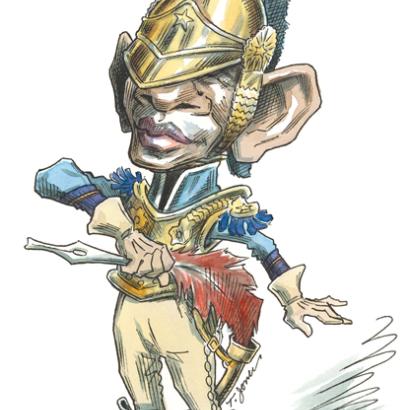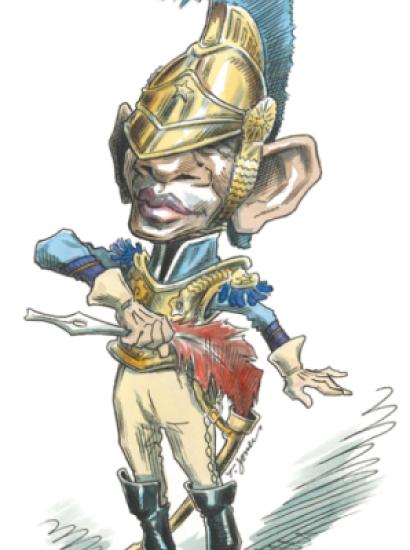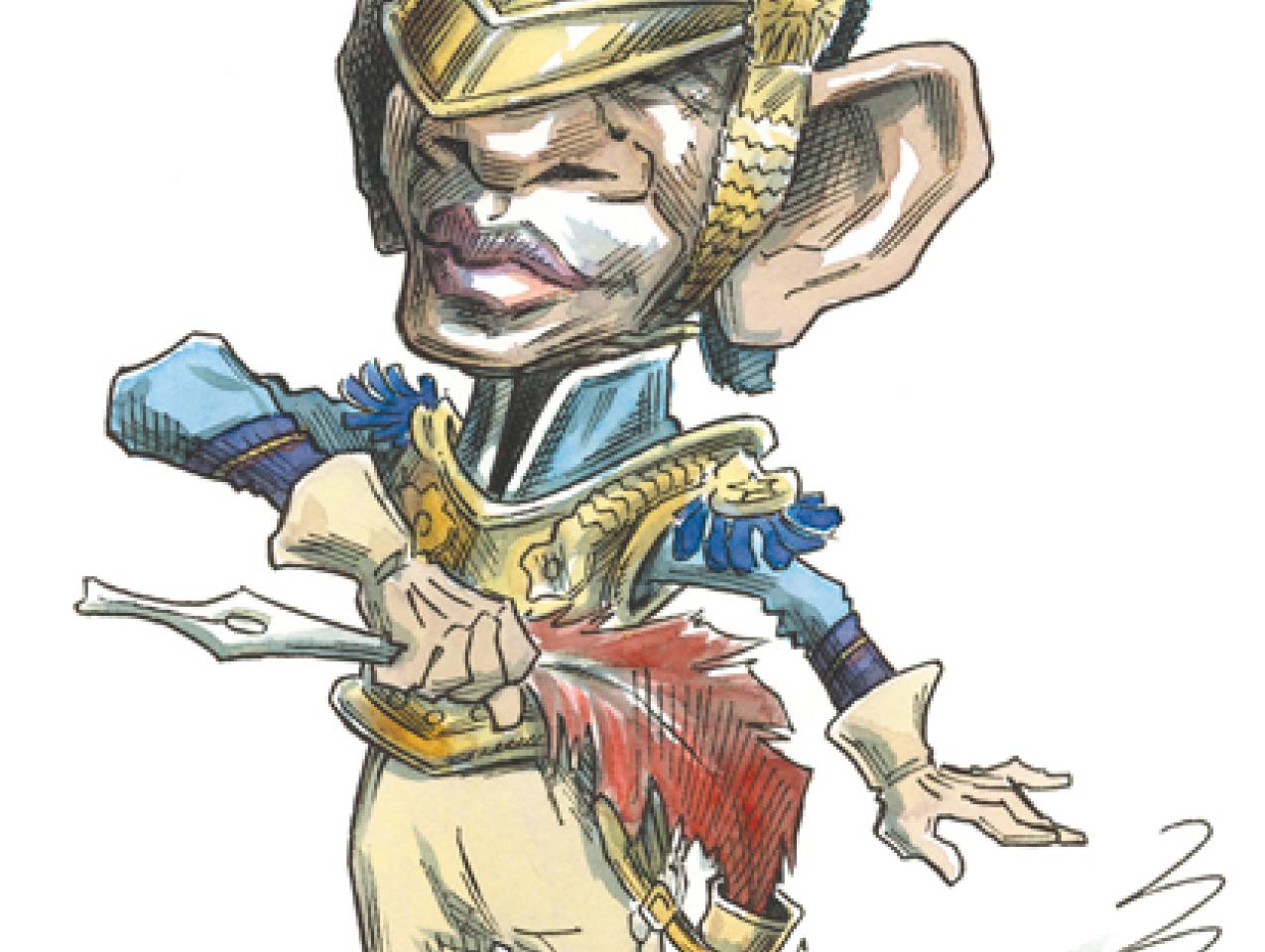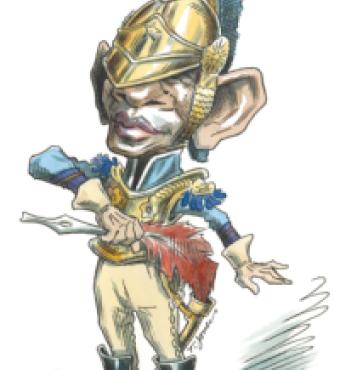- International Affairs
- US Foreign Policy
- Military
- Contemporary
- World
- Security & Defense
- US Defense
- History
President Obama has been fulfilling his campaign promise to restore diplomacy, including “engagement” with our enemies, to American foreign policy. His overtures to Cuba, Venezuela, and particularly Iran, along with his well-received meetings with our allies in Europe and his outreach to Russia, reflect his aim to reinvigorate America’s position in the world by returning to the multilateralism, reliance on transnational institutions such as the United Nations, and diplomatic discussion and negotiation presumably neglected by his predecessor, whose unilateralist penchant for using force entangled the United States in a brutal war, alienated our allies, and tarnished our global reputation.
This belief in the power of diplomatic engagement to defuse crises and resolve conflicts without the use of force reflects Western ideals that since the Enlightenment have shaped notions about interstate relations. These ideals assume that human nature and civilization are progressing away from the violence and disorder fostered by irrational superstitions, such as ethnic, religious, or nationalist loyalties, to a world in which the essential rationality of human nature will be liberated and thus able to create a more stable and just universal social and political order. This ideal further assumes that there is a global “harmony of interests” because all peoples desire the same ends as Westerners: peace, prosperity, and political freedom.
Once alerted to these true interests, all peoples will realize that these goods can be best obtained not by force and the pursuit of parochial national interests but by networks of interstate agreements that adjudicate disputes rationally and subject the behavior of nations to clearly defined international rules and protocols enforced by transnational organizations, thus creating the order in which peace and prosperity flourish. Then war will give way to diplomacy: rational discussion, negotiation, respect and tolerance for the other side’s demands, and a mutual desire to adjudicate grievances without the destruction and suffering that attend the use of force.
Ever since Immanuel Kant’s influential 1795 essay “Perpetual Peace,” the years have seen numerous attempts to realize these ideals, whether through international agreements such as the Geneva and Hague Conventions or institutions such as the League of Nations and the United Nations. Insofar as it has a foreign policy, the European Union embraces this Kantian ideal predicated on “supranational constraints on unilateral policies and the progressive development of community norms,” as Oxford University’s Kalypso Nicolaidis describes it. The goal is to create a “security community” that favors “civilian forms of influence and action” over the use of force and whose guiding principles will be “integration, prevention, mediation, and persuasion.” For the past several U.S. presidential elections, this has also been the philosophy of the Democratic Party, one being put into practice by Obama, which explains in part why European leaders have welcomed him so warmly.
This idealistic internationalism could be tested empirically by examining the historical record of the past hundred years or the achievements of institutions such as the League of Nations, the United Nations, and various other intergovernmental agencies. By this test, these ideals have been a failure, given that in the twentieth century 200 million people were killed by war, genocide, civil war, gulags, ethnic cleansing, concentration camps, and various other forms of state violence and interstate conflict. The League of Nations and later the United Nations were able to prevent none of those deaths and in some instances––Kosovo and Rwanda, for example––inadvertently facilitated them. More important, however, is a critique of the underlying philosophy on which this ideal, which we can call “utopian internationalism,” is based.
HISTORY takes a HARDER VIEW
First, the Enlightenment view of human nature as rational and peace loving––once it is liberated from unjust social, economic, and political orders—is hard to support from history, which, as Edward Gibbon said, is “little more than the register of the crimes, follies, and misfortunes of mankind.” On this point, the Greek historian Thucydides was closer to the actual behavior of people and states. In his History of the Peloponnesian War, Thucydides highlighted the perennial power of the irrational in human behavior, the force of appetite, passion, fear, pleasure, violence, and the desire for honor that drives human action, particularly at those times of disorder and danger when “human nature, always rebelling against the law and now its master, gladly showed itself ungoverned in passion, above respect for justice, and the enemy of all superiority,” writing of the many revolutions that erupted in the Greek city-states during the war.
In this view, which we can call “tragic realism,” human reason not only will not control the “imperious necessities,” as Thucydides called them, but instead will be used to achieve those irrational and destructive aims.

The sources of conflict, then, will be found in an irrational human nature, constant over time and space, rather than in environmental or other material causes, which will merely supply the occasion for the human passions and appetites to be manifested. In a speech to the Corinthians and Spartans right before the outbreak of the war, the Athenian ambassador identifies these causes of war: fear, honor, and interest, all three reflecting the irrational springs of human behavior. “It follows,” the Athenian ambassador says, “that it was not a very remarkable action, or contrary to the common practice of mankind, if we did accept an empire that was offered to us, and refused to give it up under the pressure of three of the strongest motives, fear, honor, and interest. And it was not we who set the example, for it has always been the law that the weaker should be subject to the stronger.”
Of course, various idealistic pretexts such as peace or justice will frequently be brought forward as motives for actions, but these will often be camouflage or rationalizations for advancing a state’s interests, to be abandoned once such ideals will not serve that purpose. Moreover, because interests will necessarily collide and the goods that states desire will differ, ultimately force or the credible threat of force will be the only way to settle these conflicts. Thus, as Plato’s Cleinias puts it in the Laws, peace is “only a name; in reality every city is in a natural state of war with every other.”
Thucydides’ analysis of the origins of conflict in the eternal verities of human nature, and in state behavior motivated by fear, conflicting interests, or ideologies like honor, suggests that the rational argument and negotiation of diplomacy, based on an assumed “harmony of interests,” are unlikely alone to resolve or deter conflict and often will provide either pretexts by which interests are advanced and aggression pursued or the excuses for inaction for those not disposed, whether through fear or interest, to resist the aggressor.
For example, an aggressor for his own ends can manipulate this process of negotiation, meetings, summits, and so on to buy time or camouflage his true intent. History is filled with examples of this manipulation of diplomacy, the most notorious being Adolf Hitler’s negotiations at Munich in September 1938, when the French and British betrayed Czechoslovakia on the pretext that Hitler was concerned with the plight of the Sudeten Germans and that negotiating a settlement to that problem would defuse the crisis, a goal they assumed Hitler shared. Of course, Hitler’s true aim was dismantling the Versailles Treaty’s eastern settlement by destroying Austria, Czechoslovakia, and Poland.
More recently, the Israeli-Palestinian conflict has for several decades been the subject of numerous summits, meetings, agreements, special envoys, “road maps,” and other diplomatic devices meant to resolve that conflict, all on the assumption that a critical mass of Palestinian Arabs desire a national homeland in which they can live in peace, and that they will negotiate in good faith to achieve that end. More evidence exists, however, that the destruction of Israel for religious and revanchist motives is the real aim, one that force has three times failed to achieve. Thus diplomacy becomes a tactic for buying time and camouflaging this motive until changing circumstances allow for the destruction of Israel to be pursued openly.
Likewise, Saddam Hussein spent twelve years manipulating the UN inspection regime, hoping that in time the public relations nightmare of the sanctions, the loss of American political will, and France and Russia’s desire to do business with him would end both the sanctions and the inspections, an outcome prevented only by the U.S. invasion. And, for almost two decades, North Korea played the diplomatic game with the United Nations and the International Atomic Energy Agency until it acquired nuclear weapons, reaping along the way billions in aid from the West.
Finally, history shows that a state faced with an aggressor but unwilling to confront him, whether because of fear, internal political constraints, or its own national interests, will use diplomacy to create the impression that something is being done, substituting words for deeds. This is particularly important in democratic states, where transient public opinion puts enormous pressure on elected officials. A multinational organization such as the United Nations, then, serves as the photogenic locus of debate, inquiry, resolutions, and other verbal camouflage for the inability or unwillingness to act, becoming what Winston Churchill warned against in 1946: a “cockpit in the Tower of Babel.”
DIPLOMACY AS CAMOUFLAGE
If Thucydides is correct about human nature and state behavior as at some level expressions of powerful irrational desires or national interests, then diplomacy will be a tool for states to achieve those interests when they lack the “hard power” of force or are unwilling to use it. This explains, as Robert Kagan suggests, the European praise of “soft power” such as diplomacy, given that their militaries are puny and find it difficult to project force beyond their own borders. The European delight with Obama’s return to diplomacy, then, partly reflects the perception that he will subordinate America’s interests to those of the imagined “world community.” But in the end, the threat of force has to exist somewhere in the “world community” to punish or pressure those states that are pursuing interests counter to the interests of other states.
Iran’s pursuit of nuclear weapons is likely to be the most important test of Obama’s foreign policy philosophy. A nuclear-armed Iran would significantly reorder the balance of power in the Middle East, most likely touching off more proliferation as states like Saudi Arabia and Egypt strive to keep up with Iran. So far, under both the Bush and the Obama administrations, multilateral diplomacy has attempted to deter Iran’s ambitions or at least through sanctions coerce it into allowing inspectors to determine the extent of its nuclear program. These attempts have failed, despite Obama’s willingness to talk directly with Iran to negotiate a settlement. And the reason for that failure confirms Thucydides’ analysis: it simply is not in Russia’s or China’s economic and geopolitical interests to impose on Iran sanctions tough enough to induce the regime to change its behavior. And with force pretty clearly off the table––except for a veiled threat of an attack from Israel––it is hard to see what the West can offer Iran that would offset the enormous gain in power and prestige that nuclear weapons would confer.
In the future, we are likely to see a face-saving settlement negotiated in which Iran possesses “nuclear latency,” the ability to create a bomb when it needs to, while the West can assert that it has kept the bomb out of Iran’s hands. Obviously, such a settlement merely kicks down the road all the problems of nuclear capability in the hands of an autocratic, religiously fanatic regime whose president has expressed his desire to “wipe Israel off the map.” In the end, such a settlement would resemble the Munich agreement, which merely postponed Hitler’s aggression and world war for a year.
Thucydides’ insights on human nature suggest that Obama’s claims to resolve conflicts through diplomatic negotiations, absent a credible threat of force, are dubious at best. Interest, fear, passionately held ideas such as honor or religious faith will trump any rational calculation or appeals to abstract standards of justice or equity, which will then become, like the process of negotiation and deliberation, mere pretexts or camouflage for the pursuit of aggression. As Thomas Hobbes, the first translator of Thucydides into English, has written, “For the laws of nature, as justice, equity, modesty, mercy, and, in sum, doing to others as we would be done to, of themselves, without the terror of some power to cause them to be observed, are contrary to our natural passions, that carry us to partiality, pride, revenge, and the like. And covenants, without the sword, are but words and of no strength to secure a man at all.”
















